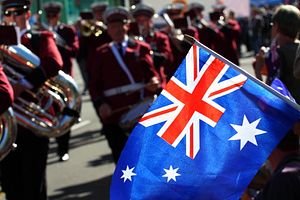Australia’s collective shock at the Prince Philip knighthood shows how alien the concept of knights and dames is to our contemporary identity. Our country does not feel comfortable with the trappings of a medieval monarchy. That is why an Australian Republic, rather than a system with an English queen or king as the head of state, is a much better reflection of our self-image, and how we project ourselves in the world.
We can tell a lot about the way that the monarchy/republic question affects our international standing by looking at one of the world’s most dynamic economies, which also shares its national day with Australia’s.
In India, January 26 is Republic Day, a national festival commemorating the date in 1950 when the Constitution of India became the supreme law of the land, abolishing the British Monarch as the head of state and establishing the Republic of India as the first nation to become a republic within the Commonwealth.
It was the foundation of the Indian Republic that in many ways began the modern Australia-India relationship. An independent India was able to be explicit about its goals and desires, unfettered by any residual reliance on Britain.
For instance, the Indian Constitution, unlike Australia’s, contains within it guarantees for the beneficial treatment and inclusion of marginalized groups in the political, social and economic structures of the nation.
In the Asian Century, how disconcerting must it be for our Indian, Indonesian, Chinese, and Japanese friends that we cannot shrug off sentimental and anachronistic attachments to the House of Windsor?
How odd it must look when the prime minister spruiks his engagement with Asia but then indulges in obsolete colonial sycophancy by doling out an unnecessary Australian knighthood to an über-privileged British citizen?
Or when he tells all and sundry that Australia is the greatest country in the world, but implicitly claims that we are not quite great enough to trust one of our own at the top?
Prime Minister Narendra Modi was joined in the 2015 Republic Day celebrations in India by President Barack Obama, the head of state of another proud nation that had cast off cringing and fearful obeisance to British kings and queens, declared their independence and written their own constitution to express their pride and sense of trust in their country, their identity and themselves.
But Tony Abbott and his government are looking backwards to a past focused on monarchical models.
He is stubbornly leading a government of yesterday’s men furiously advocating last century’s ideas. A century when words like “coal” and “Sir” made sense and had not been overtaken by ideas like “renewable,” “NBN,” and “mate.”
How does it sit with our claimed belief in the “fair go” when the prime minister’s preferred qualifications to be Australia’s head of state are that you must be a white, preferably male, Germanic-Briton to title born, and not an Australian of merit-earned?
While bipartisan support is critical to the inevitable success of an Australian Republic, it is equally inevitable that the Australian Labor Party will make it happen.
At some point in the future, prompted by Labor, Australians will decide that one of their fellow Australians should be our Head of State, and will vote to amend and improve our Constitution accordingly. The question is, what are we scared of now, that Australians will not fear then?
As Bill Shorten, the Leader of the Opposition, said on Australia Day,
“Let us, in 2015, be brave enough to breathe new life into the dream of an Australian head of state…(O)ur head of state should be one of us. An Australian Republic – a model that truly speaks for who we are: our modern identity, our place in our region and our world. “
By such a declaration, Australia will make it clear to ourselves and the world that we do trust an Australian to grow up to be appropriate for us, representative of us, and worthy of us.
Like many of the Abbott government’s policies, knighthoods have little support in the Australian community, quite simply because they look back to a medieval English political system that has no relevance in a modern Australia. And Australians won’t have a bar of it. Like India and the United States, one day we WILL place our trust in one of our own as our Australian head of state.
That day can’t come soon enough.
Lisa Singh is a Labor Senator for Tasmania and a co-convenor of the Australian Parliamentary branch of “Labor for an Australian Republic.”

































